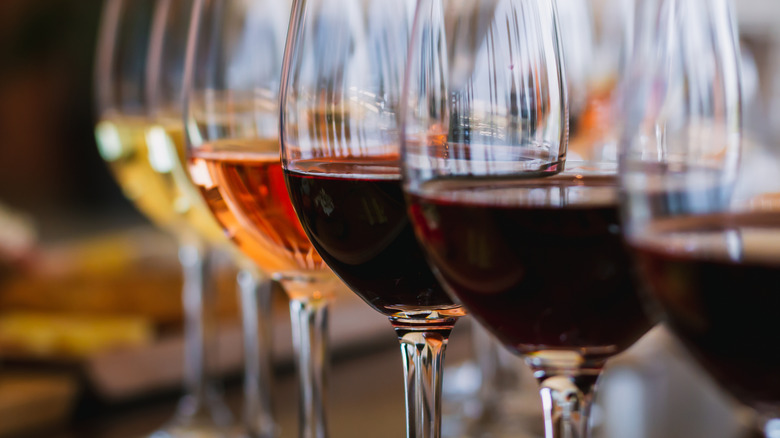What Is Clean Wine? Does It Mean Your Typical Wine Is Dirty?
Wine can be described in a myriad of ways — dry, tannic, crisp, full-bodied, you name it. But have you ever heard a wine be described as clean? Although professionals have previously used the word to denote crisp and straightforward wines, the concept of clean wine has since taken on a very different meaning that has managed to confuse connoisseurs and newbies alike. Lucky for you, we're here to demystify clean wine once and for all.
The term "clean wine" (not to be confused with natural wine) essentially merges together the wine and the wellness industries. While there aren't any regulations to classify these tipples, most are defined by their use of organically grown grapes paired with methods that require minimal intervention. Clean wines are free of additives, boast zero additional sugar, and contain fewer sulfites in comparison to conventional wines. Plus, they're often listed as being vegan, paleo, and keto-friendly. Some brands have even proposed benefits like fewer headaches and zero hangovers as a result of these "clean" characteristics. If clean wine sounds too good to be true, the truth is that it is.
Clean wine isn't all that it's cracked up to be. In fact, there are several reasons why you shouldn't drink it. It actually boils down to clever marketing that aims to brand wine as a wellness product. This not only leads consumers to (incorrectly) believe that clean wines boast higher quality, but that the integrity of the wines they've grown to know and love should be called into question for being "dirty."
Say it with us, there's no such thing as dirty wine
Just because a bottle isn't labelled as clean, this doesn't mean it should be vilified or dubbed as dirty. These are, after all, arbitrary terms. That said, conventional wines aren't made with lesser quality grapes, nor are they riddled with chemicals or a host of extra ingredients. Many share numerous characteristics with clean wine — almost all wines boast the benefit of zero added sugar, much like many can be classified as vegan due to modern processing methods.
Despite that winemakers may adhere to different winemaking philosophies, most share the same goal, which is to craft something that's both enjoyable and safe for consumption. Occasionally, this may require a bit of intervention. This doesn't reduce the quality of the wine, nor does it jeopardize anyone's health or wellbeing as clean wine proponents might suggest. In the end, there's no need to limit yourself to buying bottles that claim to be "better for you."
Ultimately, whether you decide to sip clean (or ordinary!) wine is up to you. While knowing what goes into a glass is important when buying wine, don't fall victim to misleading marketing tactics. Instead, we recommend seeking out official certifications or options from smaller producers for greater transparency. Chatting with an expert can also help you find a bottle that best aligns with your preferences as well as your values. Cheers!

